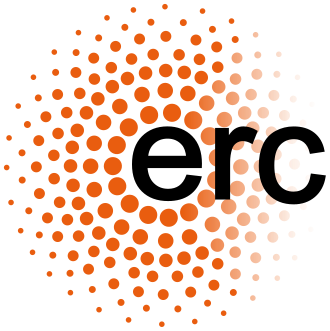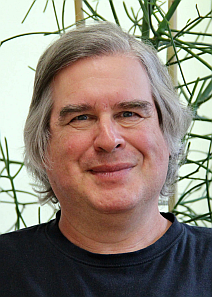ERC has awarded four researchers from the Institute of Science and Technology Austria (ISTA) with two million euros worth each. Johannes Fink, Onur Hosten, as well as Jérémie Palacci from the Physics Department and neuroscientist Maximilian Jöschare were awarded the prestigious grants.
The European Research Council (ERC) is one of the leading European funding organizations, which focuses on supporting all disciplines of remarkable research. The “Consolidator Grant” supports mid-career researchers and their teams to conduct pioneering research in their area of expertise with methods of their choosing.
Johannes Fink – cQEO – on the way to quantum computers
Johannes Fink and his research team are working in the field of experimental quantum physics. Specifically, on interconnects between superconducting circuits – one of the leading hardware platforms to realize quantum computers – and fiber optics, which is the best way to realize robust quantum networks. In the ERC-funded project cQEO (Cavity Quantum Electro Optics), they will study strong direct interactions between superconducting and optical circuits to entangle so-called qubits on kilometer-scale distances. Qubits are the basic computational unit of quantum computers. Professor Fink, at ISTA since 2016, hopes “that this research will shed light on the electro-optic coupling of individual quanta in ultra-cold environments and lead to distributed information processing and sensing with unprecedentedly low signal powers.”
Onur Hosten – QuHAMP–mechanical control through cold atoms
With QuHAMP (Quantum Hybrid of Atoms and Milligram-scale Pendulums), another project in the quantum physics field receives funding. Onur Hosten, experimental atomic and optical physicist, focuses on nothing less than the interface between gravity and quantum mechanics. Here our understanding is still rather incomplete. In addition, there is a lack of experimental possibilities. This requires massive objects with corresponding gravitational forces that simultaneously show the hallmarks of quantum mechanical behavior. Hosten and his team aim to develop a system in which they can control mechanical pendulums better by utilizing cold atomic ensembles instead of controlling them purely with lasers. “If we bring the resulting hybrid system into a quantum mechanical regime, this will be a game changer. It will open up the possibility of performing gravitationally mediated quantum entanglement tests, eventually leading to either a union of the gravitational and quantum realms or demand a revision of fundamental physical laws,” Hosten explains.
From the article: Four ISTA Scientists Awarded Prestigious ERC Consolidator Grants (31.01.2023), ISTA Website, https://ista.ac.at/en/news/four-ista-scientists-awarded-prestigious-erc-consolidator-grants/




